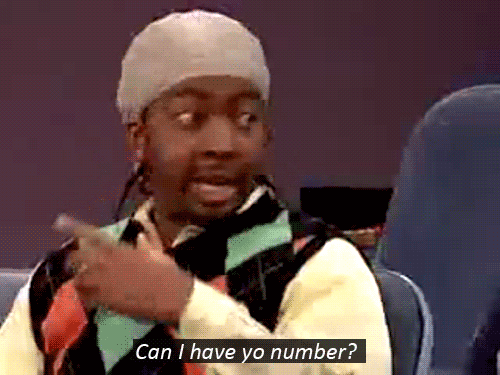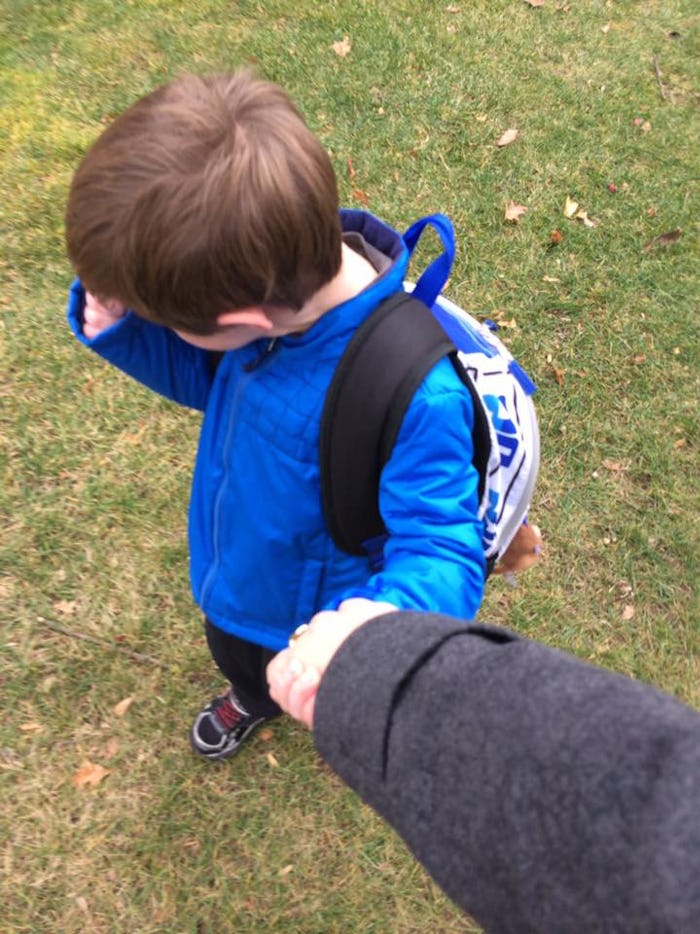Summer is almost upon us, and with it vacations, crowded outdoor events, and freely roaming kids. It's a fabulous time of year but, as a writer, it is my solemn duty to ruin it for you. OK, not ruin, but remind you of an unfortunate situation: children becoming separated from their parents. Many of us, I'm sure, have either been a child, parent, or bystander, and very reasonably start to panic when this situation arises. Fortunately, as a bystander, we are in a position to help. So, what are the basic rules for approaching lost kids?
I have lost each of my children once each, only for about a minute a pop, and they were among the worst two minutes of my life. The first time was at Disneyland, which in my mind quickly went from the Happiest Place on Earth to a hellscape on par with the most horrifying and overwhelming zombie herd scenes from The Walking Dead. I frantically spun around an ever-moving crowd looking for my 4 year old. Turns out, he didn't even know he was missing. He had just ducked into a secluded corner to play with his grandmother's cell phone. The second time was with my daughter at the other happiest place on earth: Target. She definitely knew she was lost and, fortunately, I could eventually find her by her frantic shouting from (where else) the toy aisle. Neither instance had lasted long enough to necessitate someone else getting involved, but what if they had? What should that hypothetical bystander have done?
Actually, most of the rules are pretty much just good old fashioned common sense, though in a rush of adrenaline and fear for a child's safety, we may forget or not even consider them. But remember: of everyone involved in this situation (missing child, parent looking for missing child, and good Samaritan seeking to reunite a missing child with their parent), as a stranger you are most likely the least terrified party. Be strong for the people you want to help and consider the following.
Don't Ignore Them
"Who could possibly ignore a lost child?!" you might (reasonably) think to yourself. Well, judging from a number of experiments conducted on the subject, more than you'd think.
Maybe you think someone else will deal with it. Maybe you think the child isn't actually lost. Maybe you're worried that someone would take you for an abductor (this is often a point of concern among men, or people who are of a different race than the child in question). Still, don't leave it to some imaginary good Samaritan: be the good Samaritan. If you're worried about your own safety in approaching the child (i.e. you believe yourself to be in a situation in which even a simple misunderstanding could potentially result in a risk to your safety), let an employee or nearby law enforcement officer know your concerns. Or even enlist the help of another adult, ideally a mother out with her children.
Point is, this child very likely could use your help. Go for it.
Don't Freak Out
There's a pretty good chance the child's parents have not gone far. Even so, the child might very likely be terrified, as their world has been thrown into chaos. Don't add to that chaos by panicking. Take a breath, take a look around, and think of concrete steps you can take to help reunite this child with their parents.
Don't Get Too Enthusiastic In Your Attempt To Help
This child doesn't know you, and even though your heart is in the right place they have no idea what your deal is. So if the kid runs from you and you start chasing after them (extreme example, I know), for all they know you're that terrifying robot assassin from Terminator. Fawning over them too much can be just as bad as panicking. Play it casual and cool.
Don't Grill Them For Too Much Information
Children have (rightly) been instructed not to share too much information with strangers, and you are a stranger. Start with basic information: are they hurt, their name, who they are looking for, and how long they've been lost.
Ask If They Know Their Parents' Phone Number

If you can figure this out, your problem is suddenly much more manageable. Be prepared, however, for them not to have this information, especially if you happen upon a toddler. Even if an older child typically knows his parents' number, the stress of the moment may affect their memory, or they might just be too scared to share it with you. If you can't get the parents' digits, hope is not lost.
Ask Them If They Have A Meeting Spot
Many parents instruct a child to go to particular place if they wind up separated from the group. If so, escort the child to that spot and wait with them until their parents arrive.
This also serves as a good reminder to establish a meeting spot with your own child in the event you should become separated from them.
Don't Get Overly Affectionate
I can speak personally here: I am a tremendously affectionate person, especially as a mother. I like giving and getting hugs. I will randomly pick up my children and squeeze them for no other reason than they looked particularly adorable at a given moment. We are known for squeezing three to a couch cushion while watching TV. They get no fewer than 100 kisses a day.
Fortunately, my children are pretty used to it (and down with it) since I've been doing this literally since they were born. But here's the thing: you don't get to do that to kids you don't know. Not even if all you want to do is comfort them and let them know they're safe. Not even if that's your typical love language. Offer a hand to hold, don't make them take it, and keep the physical affection to a minimum.
Don't Remove Them From The General Area Where You Found Them
Their parents (who, again, are likely not very far) will be looking for them in the vicinity of where they were last seen. As such, it's important to keep them as close to that spot as possible.
And for the love of God, don't take them home with you. This isn't some sort of Victorian novel about a plucky orphan whom you randomly take under your wing.
Stay With Them
See this through. A consistent presence will likely make this less traumatic for the child, and they will certainly need guidance until they are reunited with their parents.
Comfort Them
Again, without getting all lovey dovey, read the child's mood and body language to see how best to provide reassurance. Sometimes talking to them too much will only serve to further upset them. Other times, pleasant engagement might make them feel better. See how the child is responding to your attempts and adjust as necessary.
Don't Expect Them To Be Cool With You
If they don't respond to you with graciousness, warmth, or the kind of rapport you'd hope for, don't take it personally. They're having a rough time of things and having to engage with a stranger (when, chances are, they have been taught to be wary of strangers) may mean they're going to keep their guard up for the duration of your time together.
Get Police Or Security Involved If Necessary
Sometimes this can be handled, civilian to civilian, in pretty sure order. Other times, when you can't track down the parent on your own, or if the child is non-verbal or non-communicative, you may need to invoke the assistance of a public servant, store employee (with access to a PA system), or security guard, depending on the situation.
Again, try not to move from the general area unless you have to (unless you're escorting the child to their meeting place), but sometimes circumstances will demand it.
If You Recognize The Kid As A Missing Child, Call The Police Immediately
Because the adult who claims the child (and to whom the child might willingly go, considering most children are abducted by a non-custodial parent) may not be whom they should be returned to. If you recognize a kid from a billboard, milk carton, or viral post, do not attempt to handle the situation yourself: involve the authorities immediately.
Don't Expect Effusive Gratitude
Either from the parent or the child. You may have been instrumental to their reunion, but you are not who either is thinking about right now. You may even face hostility from a parent if they, in their panic, mistake your intentions. (Hey: how would you react if you saw an unknown adult hanging out with your child that you feared might have been abducted by a strange adult.) That's OK, because this isn't about making you feel good about doing the right thing. This is about doing the right thing.
Don't Judge Or Lecture The Parents Once They Are Reunited With Their Child
They have likely just had the scare of their life. Even if you feel they were being careless, or you're finding yourself strongly empathizing with the scared child, do not take this out on the parents. They've been through enough already.
